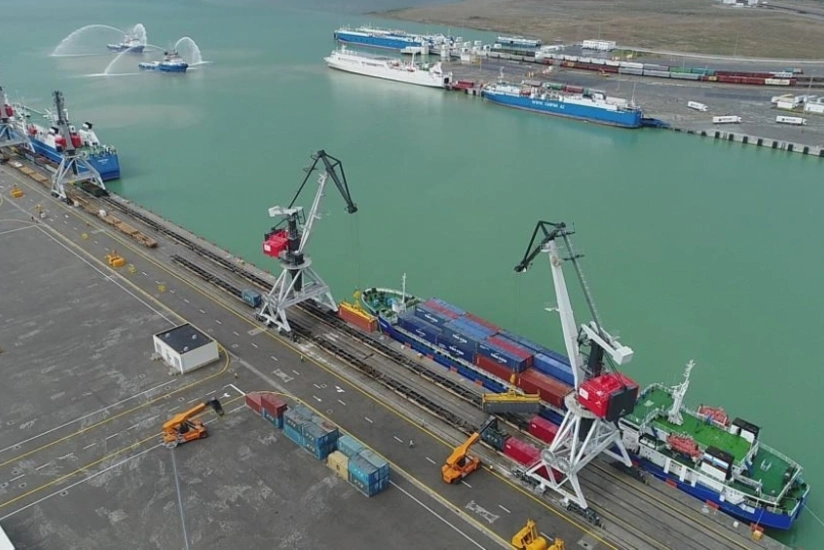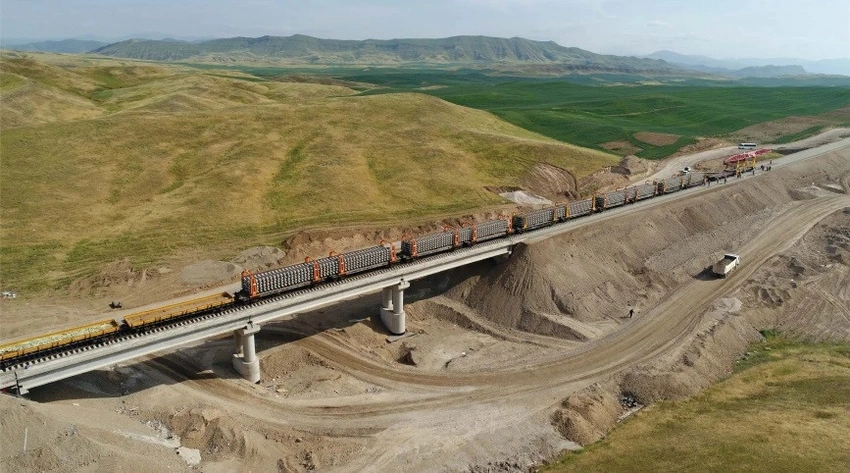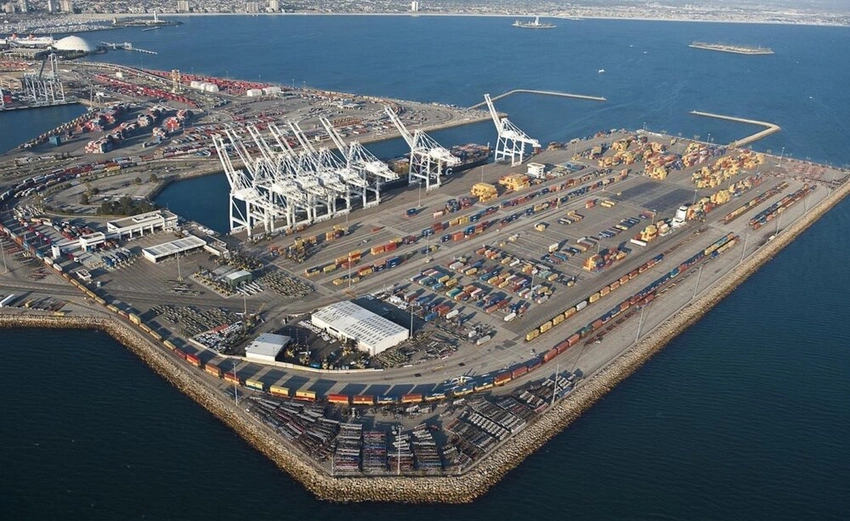Expert: Azerbaijan strengthens its strategic position in North-South Corridor
- 10 November, 2025
- 15:25

Azerbaijan is strengthening its strategic position as one of the key links in the North-South Transport Corridor, becoming an important transit center in the growing trade and logistic integration among the countries of the region, transport expert Rauf Aghamirzayev told Report.
According to Rauf Aghamirzayev, the North-South Corridor consists of three main segments, and currently the Eastern segment - the Trans-Caspian route - is being used more actively:
"This involves transportation between Russian and Iranian ports across the Caspian Sea. The decreasing water level of the Caspian, especially more prominently observed in the northern part of the water body, affects the efficiency of the route," the expert noted.
Aghamirzayev added that the Western segment is considered the most optimal route in terms of distance and infrastructure:
"Azerbaijan stands out with its infrastructure advantage in this area, and work continues to improve the corridor. Currently, the only incomplete section is the Rasht-Astara railway segment. According to recent information, land allocation has been completed for 34 kilometers of the 162-kilometer line. Construction is planned to begin by March 2026. The line is expected to be completed and put into operation in about four years. Currently, multimodal transportation is also being carried out along this route."

According to the expert, Azerbaijan's transit capabilities will further expand with the launch of the Araz corridor - an automobile route passing through Iranian territory parallel to the Zangazur corridor:
"This automobile route passing through Iranian territory parallel to the Zangazur corridor should be operational next year. Multimodal transportation within the North-South route framework is also possible along this direction."
Aghamirzayev noted that after the full realization of the corridor, interregional economic relations will strengthen and the integration process will accelerate. This will give a serious boost to cargo flows both from north to south and from south to north.
India is one of the countries most interested in the North-South Transport Corridor. This corridor is a globally significant project aimed at providing faster, safer, and sanctions-free transportation of goods from Asia to Europe, connecting Russia, Iran, Azerbaijan, and India.
The main goal of the project is to connect Russia with Indian ports and, in a broader sense, with South Asian, Persian Gulf, and African markets. In this regard, the corridor opens new trade and logistics opportunities for India.
At the same time, this transport artery has the potential to reshape the global cargo transportation system by playing an alternative role to the Suez Canal.
Regarding India, the expert believes that along with the country's official position, the statistics of tourists coming to Azerbaijan in recent years is also noteworthy - Indian citizens are among the top tourists visiting Azerbaijan. This shows that a natural foundation has formed for deepening economic and social relations between the two countries.
According to Rauf Aghamirzayev, setting aside political rhetoric, the main interest for entrepreneurs is shorter and simplified logistics routes: "For Indian entrepreneurs, the North-South corridor, as well as the South-West direction (access to Black Sea ports) are considered economically attractive.

It is well known that India has made investments in the Chabahar port and from there in railways towards Central Asia. It is expected that after the Rasht-Astara line becomes fully operational, Indian companies' interest in this route will increase further."
He also emphasized that this corridor has strategic importance in terms of Azerbaijan-Türkiye-Pakistan trilateral cooperation format:
"This route provides direct access to Pakistan and at the same time creates additional logistical opportunities for Iran in terms of access to Pakistan. In parallel, the Trans-Afghan railway (Turkmenistan-Uzbekistan-Afghanistan-Pakistan) route is being formed and its future integration with the Middle Corridor is envisaged. The North-South corridor also maintains its alternative and strategic importance in terms of access to Pakistan via Iran."
Aghamirzayev noted that the main focus in this process should be on reducing transit time.
"Since the average speed of infrastructure in Iranian territory is relatively low, significant investment is required there. However, overall, the increase in alternatives enhances competition and accelerates the integration of regional countries. Each route has its own economic logic and cargo potential," the expert emphasized.
As a result, Azerbaijan is increasing its strategic attractiveness in the North-South Transport Corridor.
"The country is a regional leader in both East-West and North-South directions. The investments Azerbaijan has been making for years to strengthen infrastructure will ensure both fast and cost-effective transportation in the coming years. This will further strengthen our country's role as a transport and logistics center," Rauf Aghamirzayev concluded.
